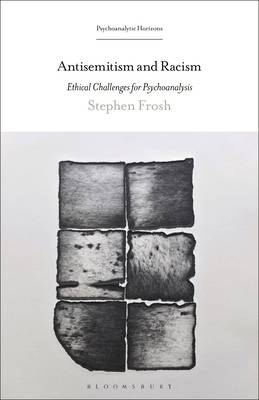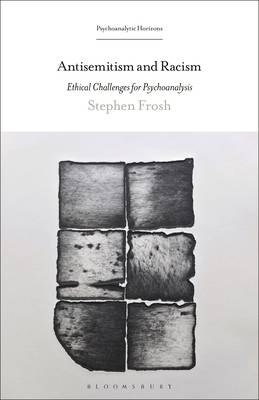
- Afhalen na 1 uur in een winkel met voorraad
- Gratis thuislevering in België vanaf € 30
- Ruim aanbod met 7 miljoen producten
- Afhalen na 1 uur in een winkel met voorraad
- Gratis thuislevering in België vanaf € 30
- Ruim aanbod met 7 miljoen producten
Omschrijving
Psychoanalysis has not had a comfortable history in relation to "race" and racism, despite its origins in the Jewish lives of Freud and its other first-generation progenitors and the insistent pressure of antisemitism upon it. Indeed, the failure to fully address racism is a running sore in the psychoanalytic movement. This has begun to be remedied in recent years, but it is still the case that psychoanalysis struggles to incorporate antiracist perspectives and that this might be a reason why it has engaged relatively poorly with Black communities. Psychoanalysis may have been a "Jewish science" in a positive sense, but it has not fully leveraged this to become a truly antiracist one.
In Antisemitism and Racism, Stephen Frosh, a leading figure in psychoanalytic studies, provides a psychoanalytically-informed examination of the relations between antisemitism and antiblack racism. Frosh's starting point is a claim that the Jewish origins and implications of psychoanalysis fuel its capacity to interrogate racism of all kinds. Indeed, the shared experience of exposure to different kinds of racism raises prospects for renewed alliances between Jewish and Black communities. Antisemitism and Racism ends with a chapter that asks psychoanalysis itself to respond to some of the challenges emerging from the Black Lives Matter and decolonial movements. At a time when division and prejudice are on the rise to an alarming degree, it is imperative that we examine, understand, and discuss the psychological roots of racism.Specificaties
Betrokkenen
- Auteur(s):
- Uitgeverij:
Inhoud
- Aantal bladzijden:
- 208
- Taal:
- Engels
- Reeks:
Eigenschappen
- Productcode (EAN):
- 9798765104712
- Verschijningsdatum:
- 10/08/2023
- Uitvoering:
- Hardcover
- Formaat:
- Genaaid
- Afmetingen:
- 140 mm x 216 mm
- Gewicht:
- 390 g

Alleen bij Standaard Boekhandel
Beoordelingen
We publiceren alleen reviews die voldoen aan de voorwaarden voor reviews. Bekijk onze voorwaarden voor reviews.







